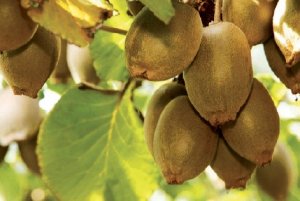These are just some of the failings identified in an independent review of Psa-V by Sapere research group which looked at import and border controls.
MAF had no strategic view of risks to the kiwifruit industry, failed to response adequately, and relationships between it, industry organisations and scientific researchers were “ineffective”.
But industry organisations must also play their part in being vigilant, the report says,
The PSA-V outbreak will cost the industry $410 million and for orchardists “the pathway back to a profitable enterprise is uncertain”.
Zespri also came in for criticism, the report saying the company should have actively examined existing import requirements after seeing the impact of Psa on Italian orchards in 2009/10. Zespri made a number of “optimistic assumptions” about New Zealand’s biosecurity regime.
“Agricultural and horticultural sectors in New Zealand derive immense value from remaining pest-free so should be investing their own resources in maintaining this status – particularly by monitoring emerging risks,” the report says.
However Sapere identified that import requirements for kiwifruit pollen were “inadequate” and based on a scientific review that was “unnecessarily definitive” in discounting pollen as a disease vector. MAF’s response to finding that live Psa could be detected on pollen was “sub-standard” and it missed opportunities to track consignments.
A process to develop kiwifruit pollen import requirements was “deficient”. A formal risk analysis should have been done and the industry consulted before allowing the first pollen imports into the country.
“The resulting lack of industry awareness may have compounded the consequences of having inadequate import conditions in place….”
For nursery stock, MAF should have at least considered prohibiting imports from Psa-infected areas, the report says. And when it found out its quarantine testing regime for symptomless plants was unreliable, it was “not sufficiently proactive” and did not track down plants that had already been released.
The report says there was a “lack of connectedness between MAF and key stakeholders”, and
“a lack of concern or urgency from the kiwifruit industry”.
“MAF had opportunity to revisit the appropriateness of its import requirements when a virulent strain of Psa emerged in Italy,” the report says.
“By 2009/10 there had been an observable and marked change in the risk profile of Psa….”
Unlike its traditional spread Psa was having a severe affect on Italian orchards and impacting gold kiwifruit for the first time. By May 2010 Australia had reacted to the Italian outbreak by requiring all pollen imports to be tested for the disease.
The report says the reaction to the emerging threat of Psa was fragmented and delayed.
Different MAF staff managing Psa risk for specific goods lead to a “reactive and fragmented assessment of the risks of Psa across individual pathways”.
For example the risks for kiwifruit were well managed, but those for pollen were never assessed.

















